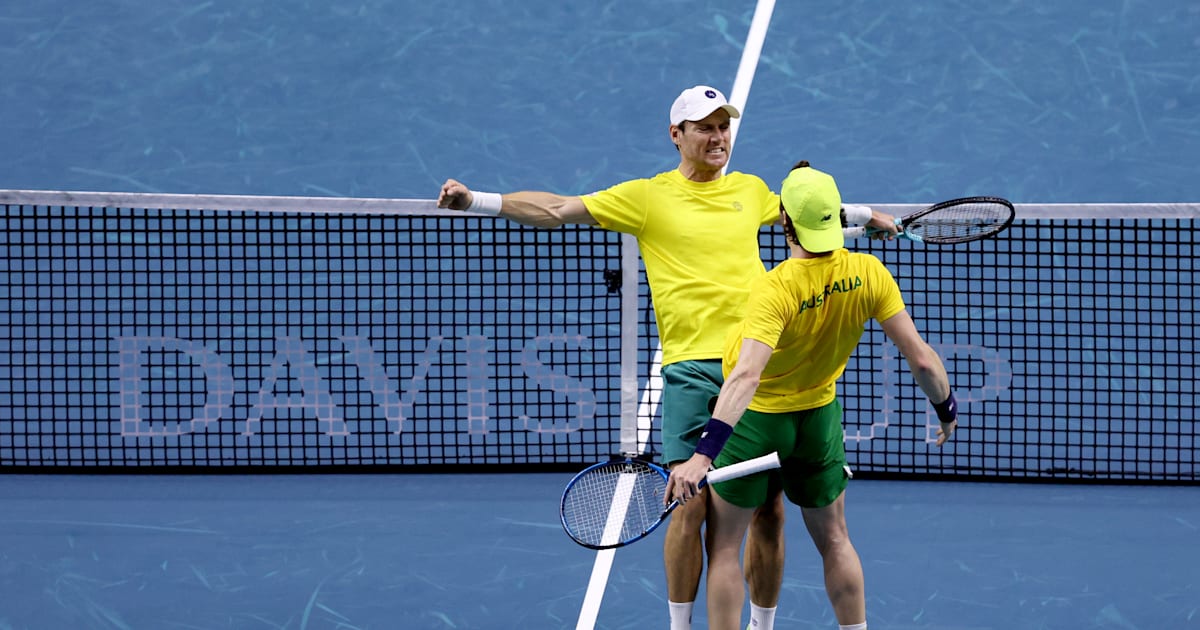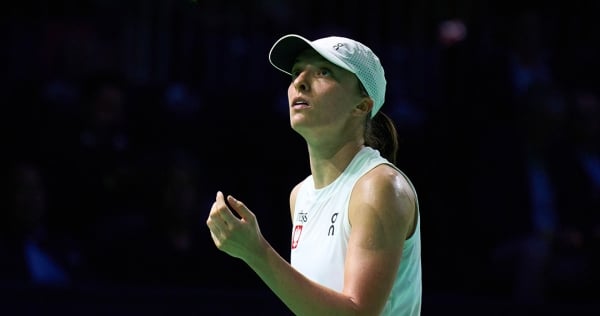Decision Dokic would take ‘100 years of abuse’ to reverse

- by Admin
- November 7, 2024

The decision to leave the green and gold colours behind is one Jelena Dokic says she would endure “100 years of abuse” to reverse.
Dokic made an immediate mark on the tennis world as she rapidly climbed through the ranks to reach No.4 in the world at the age of 19.
But her career was not as bright as many first projected, with the former Yugoslavia-born star suffering at the hands of her disgraced father, Damir.
READ MORE: ‘Abuse’: Khelif set to take legal action over leaked report
READ MORE: Twist in Brimson probe as family member takes the rap
READ MORE: ‘Important stat’ that could cripple favourites for $1m Oaks
Dokic has remained open about her experience with the abuse she endured from her father and former coach throughout her career – with unseen footage set to be revealed in her new documentary Unbreakable.
Her breakthrough moment came at the age of 16 when she defeated then world No.1 Martina Hingis in straight sets in the first round of Wimbledon in 1999.
Jelena Dokic of the Australia in action at Wimbledon. Getty
The victory remains the only time in the sport’s history that a female world No.1 has been defeated by a qualifier at the All England Club.
In the same year, she won the Hopman Cup with Aussie great Mark Philippoussis before going on to reach the Wimbledon semi finals in 2000.
Soon after her she announced her plans to switch allegiance from Australia to Yugoslavia, all the while her father was denied access to attending any of her matches.
Her allegiance switch was not well received by the Australian public, who booed the then 18-year-old off Rod Laver Arena following her defeat to America’s Lindsay Davenport.
“I would take 100 years of abuse if I could take back not playing for Australia for a few years,” Dokic, reflecting on that moment, told the Hit Network’s Carrie & Tommy Show.
Dokic revealed that as a roar of thousands of boos swarmed her mind, her father “remained isolated in a hotel room, watching me suffer.”
“I just wanted to kind of drop into the ground and disappear and never come back,” she said.
“He [Damir] robbed me of something that I cherished immensely.”
While the incident marked one of the lowest points of her career, her return in the Australian colours in 2005 was one she was eager to make the most of.
“That passion was stripped from me when I turned back on my roots. Although I fought to return sooner, I was apprehensive about the public’s perception of me,” Dokic said.
“I came to this country as an 11-year-old and embraced it wholeheartedly.

Jelena Dokic documentary enters cinemas on November 7. Instagram
“I loved Australia. I loved representing Australia. I loved team events. Everything that had to do with team events, I always won.
“I had like a 99 per cent win rate. I loved it and I thrived playing in Australia.
“It didn’t matter what match it was, every time you would hear from the crowd,’ Aussie Aussie Aussie, Oi Oi Oi’ when I was playing, I would literally get goosebumps.
“But (Damir) took that away from me for those few years.”
Dokic recalled various acts of abuse Damir committed on her but admitted she does not “hate or resent” him.
“I don’t blame, resent, hate anyone, never would,” she told the Daily Telegraph.
“I’m not bitter about it. Even to my father, which people find surprising. I don’t necessarily forgive him, but I don’t hate him.”
Use when mental health issues or suicide/attempted suicide is discussed in your article: If you or anyone you know needs immediate support, contact Lifeline on 13 11 14 or via lifeline.org.au. In an emergency, call 000
The Latest News
-
November 22, 2024Woman who was part of rescue effort that saved Brian Harman’s son from drowning remains in coma – Australian Golf Digest
-
November 22, 2024Alémais’ Lesleigh Jermanus Wins Designer of the Year at the Australian Fashion Laureate Awards
-
November 22, 2024Australian designer Katie Perry ‘devastated’ after Katy Perry wins trademark dispute
-
November 22, 2024Yes, Chef!: Min Woo Lee makes simulator ace during rain delay at Australian PGA Championship – Australian Golf Digest
-
November 22, 2024Man using Google Earth makes bizarre discovery in Australian outback





